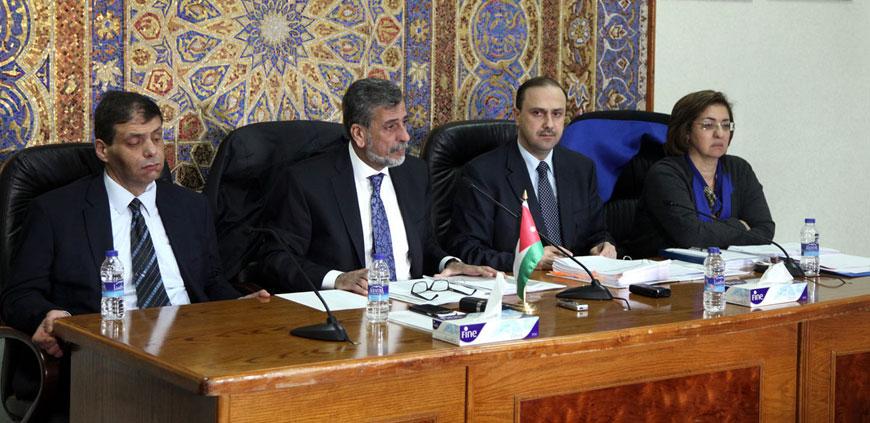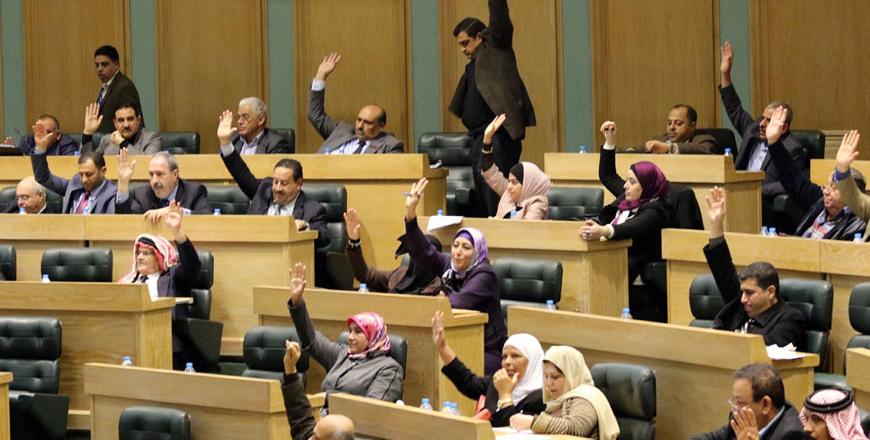You are here
Badia figures question constitutionality of voting system for bedouins
By Raed Omari - Oct 14,2015 - Last updated at Oct 14,2015
AMMAN — Banning citizens of badia from running for parliamentary elections outside their electoral districts is "unconstitutional" and "unfair", an MP and a legal expert argued Wednesday.
Deputy Hind Fayez and jurist Omar Jazi told The Jordan Times on Wednesday that the 2015 parliamentary elections law deals with the people of the badia as "second-class citizens” in not allowing them to run in the elections under the open proportional list.
Paragraph B, Article 8 of the keystone reform law deals with the northern, central and southern badia districts as a governorate for purposes of election regulations.
Fayez said that unlike citizens from Amman, Irbid, Zarqa and other areas, the citizens living in or originally from badia are not allowed to register candidacy outside their districts under the new law, keeping a controversial old provision untouched.
"This is against the constitutional principle that all Jordanians are equal,” she said.
"Badia citizens are only allowed to be candidates for their tribes. For us, the stronghold of the tribe determines where we run for the elections and who we represent," Fayez added.
The MP also explained that in not mentioning in the provision that elections in the badia will be on the basis of the open proportional list, it means it is by default subject to the closed-list system.
"Under the previous versions of the elections law, badia’s regions are classified as one governorate with the aim of empowering the bedouins and ensuring them a presence in the Lower House. But things have changed", she said. “The bedouin are no longer nomads. They are like all other Jordanians: highly educated, politicised and they held and continue to hold senior educational, military, political and economic posts. However, badia residents are still treated as 'incomplete' or 'second-class' citizens."
The same remarks were made by Jazi, an established lawyer and law professor, who said the 2015 elections law contains a suspicion of unconstitutionality.
“All Jordanians are equal in the constitution. They should enjoy the same rights with no discrimination. The rights of the citizens of Badia remain incomplete,” he said.
He explained that the law divides electoral districts according to geography but, when it comes to the Badia regions, tribe is the determiner.
“Lawmakers are for all Jordanians, not for one tribe only,” he said.
“Citizens originally from the badia regions who were born or have lived in cities for decades should be allowed to run in the elections outside the strongholds of their tribes.”
Jazi agreed with Fayez that bedouin are no longer nomads who move from one place to another in search of water and pastures for their animals, but are regular civilians with education and trade.
According to the Department of Statistics, there are only 3,000 Bedouins still living as nomads.”
“It is so strange that a public figure like Faisal Al Fayez, for example, who once was a prime minister, cannot run in the parliamentary elections as a national candidate. By law, he has to run as a candidate for central badia,” Jazi said.
Under the 2015 elections bill, the number of Lower House members has been reduced to 130 from 150, based on the open proportional list at the district level.
The new law is based on the at-large voting system in which all candidates can run for parliamentary elections on one large multi-member ticket.
Under Article 9 of the law, eligible voters will have a number of votes equal to the number of seats allocated for their district in the Lower House.
During the elections, each eligible voter has to vote for a multi-member list and for individual candidates on the same ticket.
Related Articles
AMMAN — The Cabinet has endorsed the validating reasons for the draft electoral constituency by-law, which divides the country into 23 const
AMMAN — The Lower House on Tuesday passed the draft 2015 parliamentary elections law with minor changes following six marathon sessions that
AMMAN — Women’s groups on Tuesday said they had hoped the 2015 draft elections law would have included a 20 per cent quota for women.On Mond













